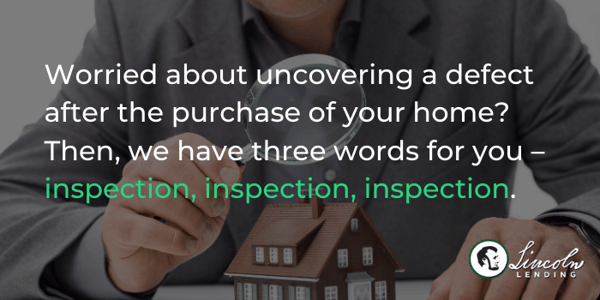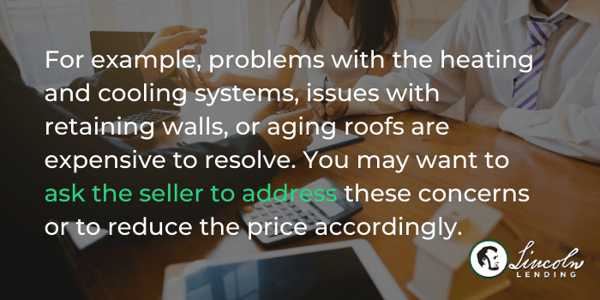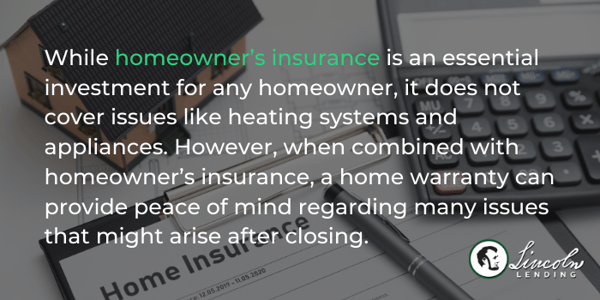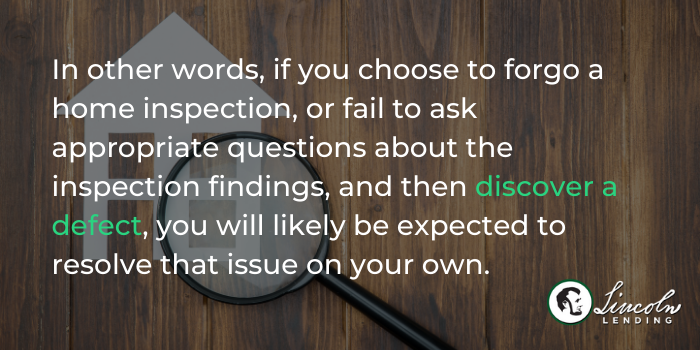Buying a house is a huge investment – one that can bring you a lifetime of happiness. But, with all the saving and planning involved, purchasing a home can be a bit scary, too.
It’s only natural to worry that your dream home could turn into a nightmare due to unforeseen issues, such as termites or a leaky roof. Thankfully, there are resources to protect you and your investment from defects uncovered after your home purchase.
By following a few tips, you can learn to take advantage of these opportunities, saving you stress and allowing you to close on your new home with confidence.
Home inspection before closing
Worried about uncovering a defect after the purchase of your home? Then, we have three words for you – inspection, inspection, inspection.

A home inspection can help you detect any serious issues with your home before the purchase and, for an average cost of $300-$400, can be a priceless investment in your peace of mind.
What’s covered in a home inspection?
Select a home inspector who is an established professional, and always be present during the inspection, asking questions and taking notes along the way.
We caution you against trusting friends or family, even those with skills in home renovation, to assess the condition of the property for legal reasons that we will discuss later. We believe you should always hire a professional inspector.
Although a standard home inspection won’t cover every inch of your home, it will cover major areas of concern, such as:
- Heating / cooling systems
- Interior plumbing
- Electrical systems
- Windows / doors
- Roof
- Ceilings
- Insulation
- Walls
- Floors
- Attic
- Basement
- Foundation
Additionally, other assessments may be available, including tests for radon, termites, rodents, septic problems, and other issues that impact quality of life.
The inspection findings will be compiled into a detailed report for you to review prior to closing.
Reading a home inspection report
No home is perfect. Inspectors may even find issues with newly constructed homes, from building code violations, to the presence of sub-par insulation.
So if the report you receive looks lengthy, it doesn’t mean you should walk away from a home you love.
First, focus on the summary section, where serious issues like a leaking roof, faulty wiring, or other health and safety issues appear. If no health and safety issues are present, read the rest of the report, looking for complex or expensive issues that you may wish to address with the home’s current owner or builder before closing.
For example, problems with the heating and cooling systems, issues with retaining walls, or aging roofs are expensive to resolve. You may want to ask the seller to address these concerns or to reduce the price accordingly.

If you don’t know what something on the report means, ask! It’s better to be safe than sorry.
Keep in mind that home inspection and home appraisal are not the same thing!
Often your lender will require an appraisal to establish the market value of the home. But, while a visual inspection is part of this valuation, your appraiser will not be looking for hidden damage or safety issues.
Do not assume that a high appraisal value means that the house is free from defects – it almost certainly isn’t.
Warranties for new construction and established homes
As we mentioned previously, both newly constructed and established homes should be inspected before closing. However, an inspection focuses on structure, safety, and major concerns, not appliances or minor fixtures.
One way to provide some additional peace of mind is to consider purchasing a home warranty.
Like warranties you may have purchased for vehicles and electronics, a home warranty entails paying a premium for reduced cost of repairs or replacements to items connected to the functioning of the home. Often these warranties cost $350 to $600 annually, with added costs for additional coverage.
Common items covered in a home warranty include:
- Dishwashers
- Built-in microwaves
- Ovens
- Ceiling fans
- Garbage disposals
- Whirlpool tubs
- Water heaters
- Electrical systems
- Heating systems
- Plumbing systems
- Sump pumps
But what about your homeowner’s insurance?
A home warranty is not the same as homeowner’s insurance, which protects the home against a catastrophic issue, such as a fire. Your lender may require you to obtain homeowner’s insurance, and though you can choose your vendor, the premium may even be automatically included in your mortgage payment.
While homeowner’s insurance is an essential investment for any homeowner, it does not cover issues like heating systems and appliances. However, when combined with homeowner’s insurance, a home warranty can provide peace of mind regarding many issues that might arise after closing.

Note: many home warranty policies have a clause that exempts the policy provider from covering any issue resulting from poor maintenance or negligence on the part of a previous owner.
Like most warranties, a home warranty will only cover normal wear and tear on appliances and fixtures. So, even if it is not your fault, a furnace that fails due to poor maintenance from the previous owner will likely not be covered.
If you discover an issue that may be the fault of the previous owner, what can you do?
Undisclosed defects
Most people have heard of the expression, “Let the buyer beware.” This phrase is a translation of the legal term caveat emptor, which is commonly cited during post-closure housing disputes.
Essentially, the rule of law regarding undisclosed defects is that the new homeowner has limited recourse regarding anything that could have been uncovered in an inspection.
In other words, if you choose to forgo a home inspection, or fail to ask appropriate questions about the inspection findings, and then discover a defect, you will likely be expected to resolve that issue on your own.

An exception may exist if there is proof that the previous homeowner deliberately disguised a serious issue, or failed to disclose a concern of which they clearly had knowledge.
For example, if the previous homeowner indicated that there had been no water leaks during their time in the home or omitted knowledge of a leak, but you later discover water damage hidden behind recent paint, you may have legal options.
Additionally, if a repair was an agreed-upon condition of the sale, and you discover that the repair has not actually occurred, you may also have recourse. However, these situations usually require legal action, and it may not always be easy to prove your case.
Firmly establishing what the previous owner knew about an issue may be as expensive as the needed repair, and can leave you feeling frustrated and unhappy with your home. This is not to say that, should you discover signs of fraud or misrepresentation after closing you should not act. But it is a cautionary reminder that prevention is often the best medicine.
Efforts to save a small amount of money by forgoing an inspection can cost you thousands of dollars and significant stress in the long run. Meanwhile, a thorough inspection, combined with warranties and insurance, can provide you with valuable peace of mind before, during, and after the purchase of your new home.
If you’d like a recommendation for a trustworthy home inspector, get in touch with one of the home loan professionals at Lincoln Lending.
